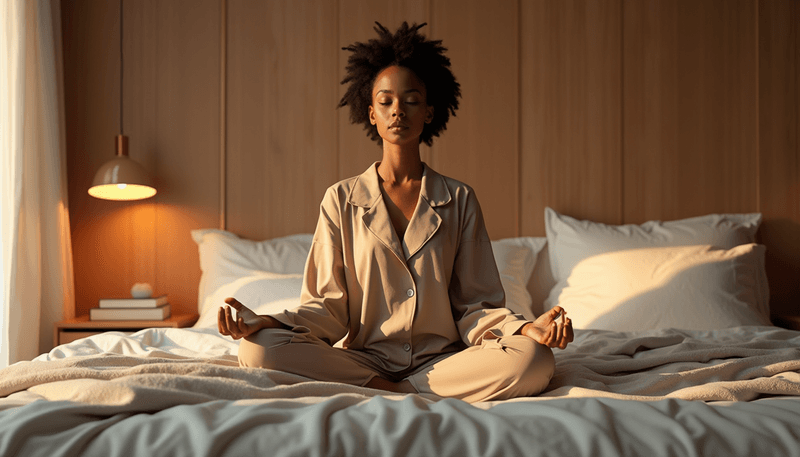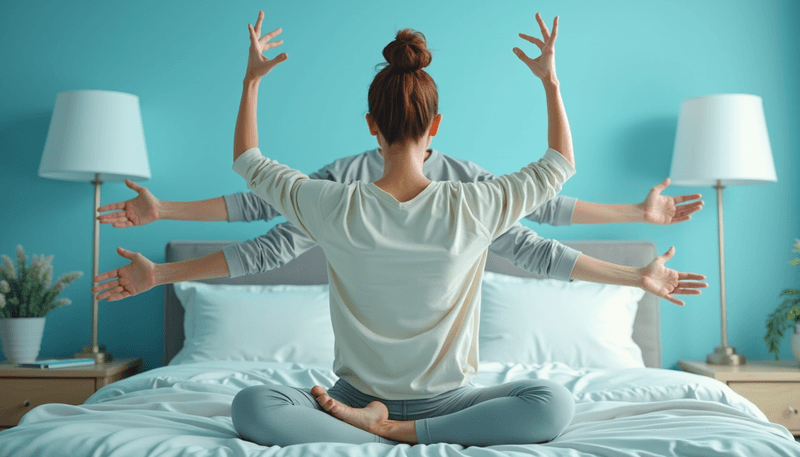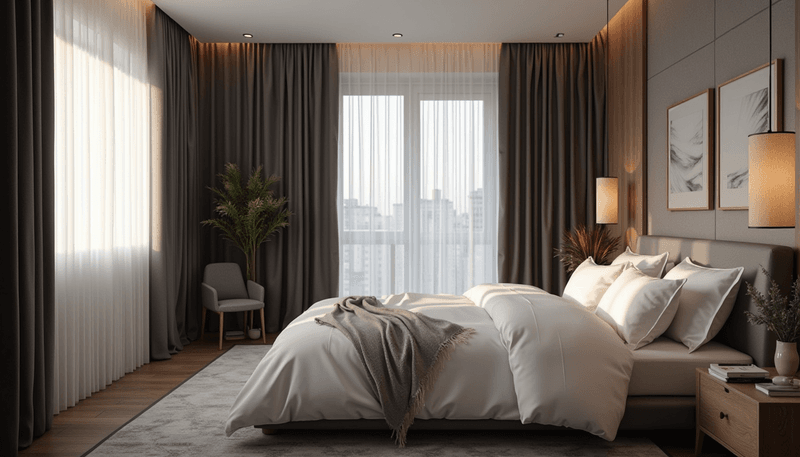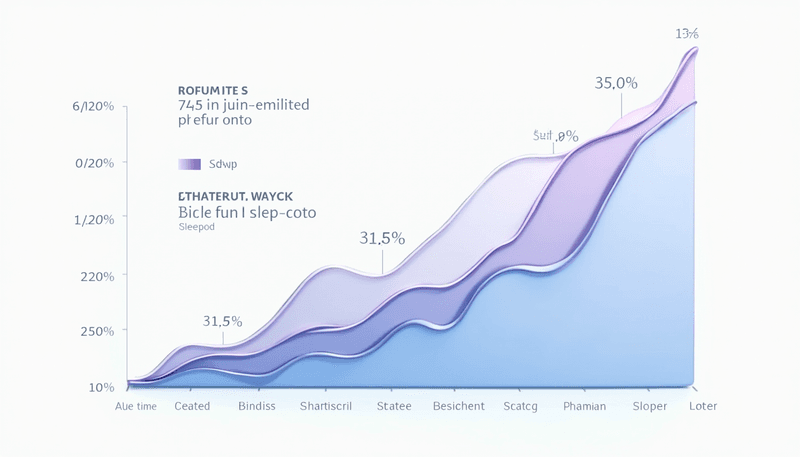Sleep Better During Menopause: New Solutions

Night after night, Sarah would lie awake, watching the hours tick by. Like many women experiencing menopause, quality sleep felt like a distant memory. But a groundbreaking study on sleep interventions during menopause offers new hope for those struggling with sleep disruptions during this natural life transition.
The Power of Movement and Meditation Combined
Think of your body as a musical instrument that needs regular tuning. Just as a pianist must adjust their instrument's strings for optimal sound, our bodies require specific adjustments to achieve restful sleep. The research shows that combining meditative movements with relaxation techniques (MMRS) significantly improved sleep quality in menopausal women.
Here's what makes this approach special:
- It integrates gentle physical movements with mindful breathing
- Helps reduce the time it takes to fall asleep
- Decreases nighttime awakenings
- Creates a natural rhythm for better sleep
Have you noticed how peaceful you feel after a gentle stretch or yoga session? That's your body's natural relaxation response at work.
Progressive Muscle Relaxation: Your Nightly Reset Button
Imagine your body as a computer with multiple programs running. Progressive Muscle Relaxation (PMR) works like a systematic shutdown process, helping your body transition from "busy mode" to "rest mode." The study revealed that women who practiced PMR experienced:
- Shorter time to fall asleep
- Increased total sleep time
- Better overall sleep quality
How to practice PMR at home:
- Lie in bed comfortably
- Start with your toes, tense them for 15 seconds
- Release and feel the relaxation for 30 seconds
- Move upward through each muscle group
- End with facial muscles
When was the last time you truly noticed the sensation of relaxation spreading through your body?
Sleep Hygiene: The Foundation of Better Rest
Just as a garden needs the right conditions to flourish, quality sleep requires proper environmental and behavioral preparation. The study incorporated sleep hygiene practices with remarkable results:
Essential sleep hygiene practices:
- Maintain consistent sleep-wake times
- Create a cool, dark sleeping environment
- Limit caffeine and alcohol before bedtime
- Establish a relaxing bedtime routine
One of my patients, Maria, transformed her sleep by simply implementing these basics. "I used to think good sleep was complicated," she shared. "But following these simple rules made a huge difference."
The Science Behind Success
The research tracked both subjective experiences and objective measurements using actigraphy devices. The results were clear: women who combined either meditation and movement or progressive muscle relaxation with good sleep hygiene saw significant improvements in their sleep quality.
Key findings:
- Sleep onset time decreased by an average of 8 minutes
- Wake time during night reduced by 2.5%
- Overall sleep quality improved by 40%
What small change could you implement tonight to start improving your sleep quality?
These approaches work by activating your parasympathetic nervous system - your body's natural relaxation response. Think of it as switching from "fight or flight" to "rest and digest" mode.
The beauty of these interventions lies in their simplicity and accessibility. No expensive equipment or medications required - just your commitment to practice regularly.
A note of encouragement: Start with just one technique that resonates with you. Perhaps it's the gentle movement meditation before bed, or maybe the progressive muscle relaxation feels more your style. The key is consistency rather than perfection.
Tonight, I challenge you to choose one practice from this research and commit to trying it for one week. Your body's natural sleep rhythm will thank you.
Which technique speaks to you most? Share your experience with others on their sleep improvement journey.

Dr. Marcus Anthony Bennett
Dr. Marcus Bennett is a Seattle-based freelance medical writer and consultant specializing in mid-aged women's health. With a background in internal medicine and over a decade of experience in preventive care, he is dedicated to making complex health topics accessible. Dr. Bennett completed his MD at Johns Hopkins School of Medicine and residency at the University of Washington. His empathetic and evidence-based approach combines traditional medical expertise with a focus on health disparities, often incorporating practical lifestyle advice. Known for his clear, engaging communication, Dr. Bennett provides actionable insights to empower his audience.







